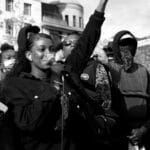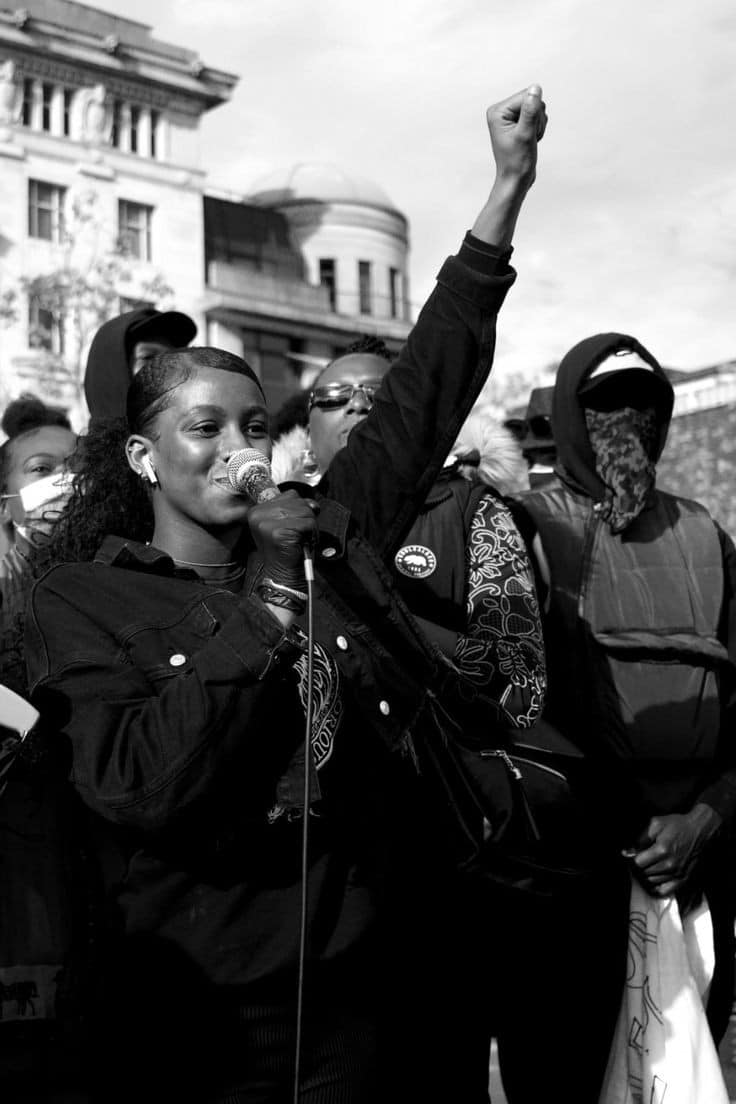Nigerian hip hop, full of dynamic and evolving musical genres, reflects the country’s rich cultural diversity and socio-political landscape. Nigeria hip hop can be described as a delicious pot of party jollof—spicy, colorful, and guaranteed to get everyone moving.
Recognized for its vibrant energy and cultural resonance, Nigerian hip hop has been a significant force in the country’s music scene for decades. However, with the meteoric rise of Afrobeats and other genres, some wonder if hip hop is losing its foothold.
Where rhymes mix with Pidgin English, and lyrical dexterity intertwines with cultural pride. This genre, deeply rooted in Nigeria’s vibrant musical heritage, has evolved into a powerful medium that transcends borders, capturing the essence of a nation’s spirit.
The question “Is hip hop in Nigeria dying?” sparks a lively debate among music enthusiasts.
Table of Contents
Growth of Hip Hop in Nigeria
Back to the question, “Is hip hop in Nigeria dying?” Well, if it is and certainly having one heck of a lively funeral! Imagine you have been invited to an all-Nigerian hip hop “wake” and instead of mournful silence, there are blaring speakers, and everyone from Lagos to Enugu is dancing like they’ve got ants in their pants.
If this is what dying looks like, then every genre might want to reconsider staying alive. In recent years, it may look like Afrobeats have dominated both local and international airwaves, which has made some music lovers believe that hip hop might be taking a backseat.
The infectious rhythms and broad appeal of Afrobeats have indeed overshadowed many other genres, including hip hop. However, it is very important to know the difference between decline and evolution. Nigerian hip hop is not dying; it is evolving. Just like your uncle who insists he’s “still got it” at family parties, pop music hasn’t lost its groove. It has just evolved.
Today’s pop stars, like Olamide and Phyno, are one of the cool talents on the trends. They’ve been mixing hip hop with Afrobeats and local flavors which made some music lovers argue that Nigerian rap music has become so intertwined with Afrobeats that it’s losing its identity. But isn’t that what makes it exciting?
Imagine adding new spices to your favorite stew. It has got the essential ingredients, but now it’s simmering with new spices. Sure, the flavour has changed, but this time, you are having a whole new different delicious taste in your mouth. Same goes for hip hop intertwining afrobeats, it’s deliciously hip hop at heart.
Nigerian hip hop isn’t just a local affair anymore; it’s a global business. Nigerian pop musicians now collaborate with international stars, performing on world stages, and racking up streams faster than a Nollywood plot twist. If hip hop in Nigeria is dying, it’s doing so with a passport full of stamps and a suitcase full of awards.
Don’t you think it’s prime time to connect with passionate readers and writers like you? Join our WhatsApp community today; you’ll be glad you did.
Here are a few historical background that sum up to the progress of Nigeria pop music:
-
Pop music’s early beginnings in Nigeria
In the late 1980s, a time when Nigerians were grooving to highlife and fuji music, a new sound suddenly arrived from across the Atlantic, carrying boom-bap beats and the poetic flows of American hip hop. Nigerians, always ready to spice things up, took this new sound and added their secret ingredient—local flavor.
Early adopters of the genre were inspired by the beats, rhymes, and style of American artists, but they quickly started infusing local flavors into their music. Pioneering acts like Junior & Pretty and groups such as The Remedies played a crucial role in laying the foundation for the genre in Nigeria.
-
The evolution of hip hop in Nigeria
The late 1990s and early 2000s marked a significant period for Nigerian pop music. This year paved the way for artists like Mode 9, Ruggedman, and Eedris Abdulkareem rising to prominence. In the late 90s, a group called “The Remedies” came into the limelight. I call them “hip hop’s first doctor.” They came not to cure diseases but to diagnose and treat Nigeria’s dance floors with their infectious beats.
Their prescription? A mix of hip hop and highlife, with a blend of Pidgin English. They didn’t just rap; they told stories, shared experiences, and made sure everyone knew that rap music was here to stay. As the genre evolved, so did its stars. Mode 9 and Ruggedman brought serious lyrical prowess to the scene.
Mode 9’s rhymes were so tight while Ruggedman wasn’t afraid to rap like the true hip hop artist he was. These artists brought a distinct Nigerian identity to the genre, adding Pidgin English, our indigenous languages, and local stories into their lyrics. This period also saw the rise of some record labels such as Kennis Music, which played a very important role in promoting and distributing Nigerian hip hop music.
-
The genre’s mainstream success
The 2000s onwards witnessed Nigerian pop music gaining mainstream success, both domestically and internationally. Artists like M.I Abaga, Naeto C, and Ice Prince became household names, delivering chart-topping hits and critically acclaimed albums back to back.
M.I Abaga, the self-proclaimed “Chairman of sway,” this guy was smoother than a freshly paved Lagos road (on a good day), and his lyrics were as sharp as a tailor’s needle. M.I made hip hop not just cool but also commercially successful. He had everyone from market women to corporate executives nodding their heads and saying, “Yes, boss!”
The genre began to diversify, with sub-genres and stylistic variations emerging, reflecting the diverse tastes of Nigerian audiences.
-
Blending hip hop with afrobeats
In recent years, Nigerian hip hop has increasingly intersected with Afrobeats, another popular genre in the country. This blending has led to a unique sound that combines hip hop’s rhythmic and lyrical elements with Afrobeats’ infectious melodies and danceable rhythms.
Nigerian artists like Olamide who now has his record label (YBNL), Phyno, and Falz exemplify this trend. Olamide and Phyno’s “Kings of the Streets,” have been proving that you could rap in Yoruba and Igbo and still make people dance like their feet were on fire. These guys brought the streets to the studio and made hits that had everyone singing along, even if they didn’t understand a word. Their secret? Making every beat hotter than a Lagos afternoon.
Who can forget Falz? The lawyer-turned-rapper who uses his music to highlight social issues with a humor that could make even a stern judge laugh? Falz’s songs are like legal briefs—detailed, impactful, and occasionally hilarious. He doesn’t just drop bars; he drops knowledge that becomes hits.
These artists are achieving widespread acclaim for their innovative music. Today, hip hop in Nigeria continues to grow, like a plantain tree in rich soil. New artists are sprouting up everywhere, bringing fresh sounds and ideas. With digital platforms making it easier than ever to share music, Nigerian hip hop is reaching global audiences.
If you don’t mind receiving premium insights like this in your inbox, you can subscribe to our newsletter and let’s keep you posted.
Conclusion
Nigerian pop music is a testament to the country’s creativity, resilience, and boundless energy. It’s a genre that continues to evolve, reflecting the dynamic spirit of Nigerians. Whether through social commentary, infectious rhythms, or innovative fusions, Nigerian hip hop captures the heart and soul of a nation, inviting the world to listen, dance, and join the journey.
So, if you’re ready to dive into Nigerian rap music, prepare yourself for a musical journey that’s as exciting as a Lagos bus ride—fast, loud, and full of unexpected twists and turns.
Edited by Priscilla Ajayi.
About Author

- Passionate content/technical writer with a flair for words and a keen eye for detail. Specializes in producing compelling content that captivates readers. Dedicated to delivering high-quality writing content with a commitment to meeting client needs and exceeding expectations.
Latest entries





